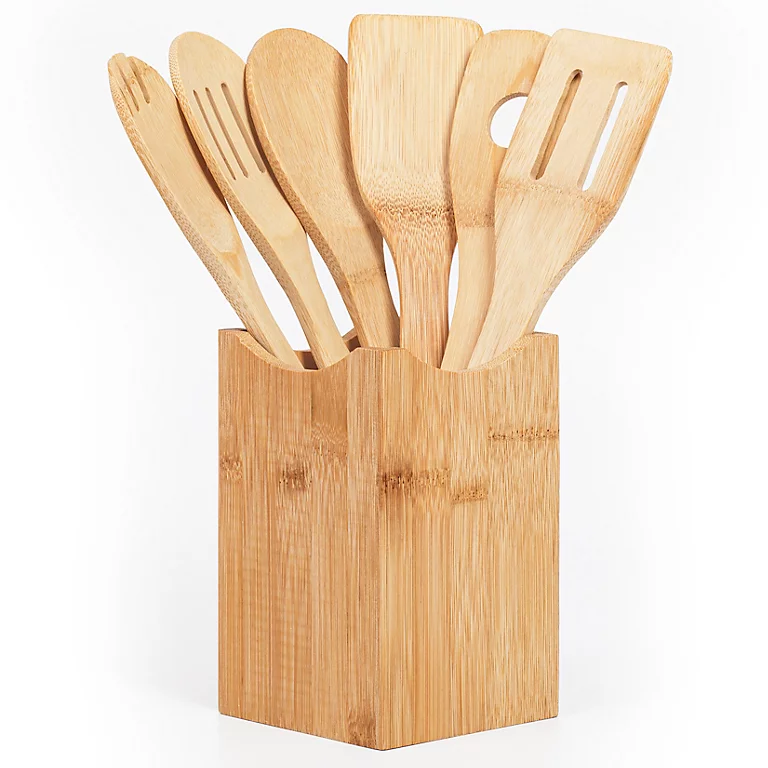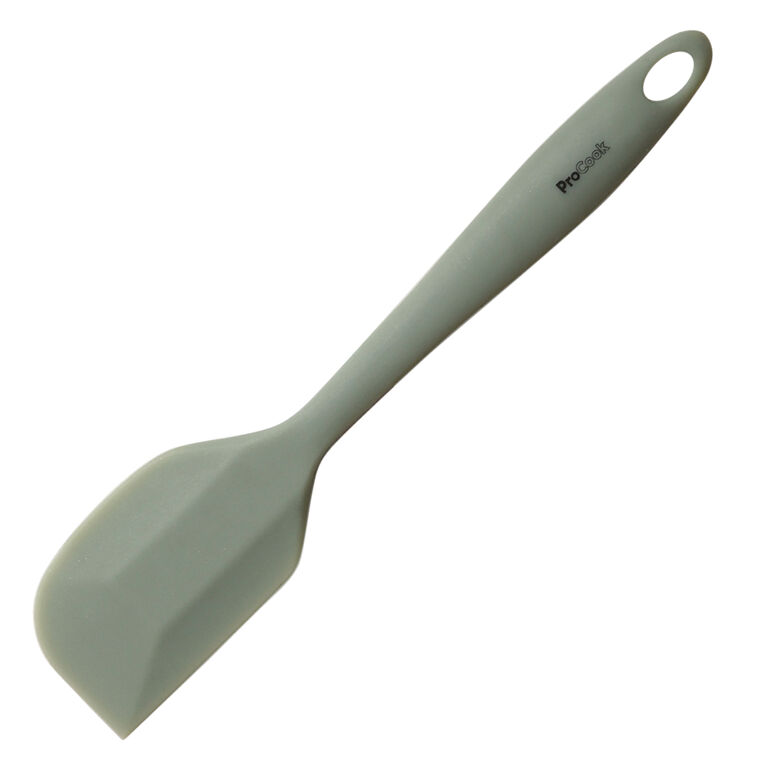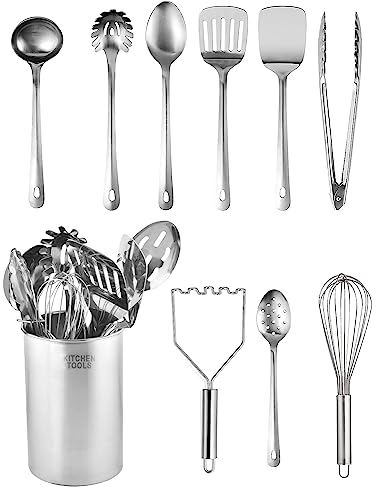Experts are urging people to throw away their black cooking utensils after terrifying new study
A groundbreaking US study found toxic chemicals in black plastic - but experts warn the UK is also at risk of these harmful compounds

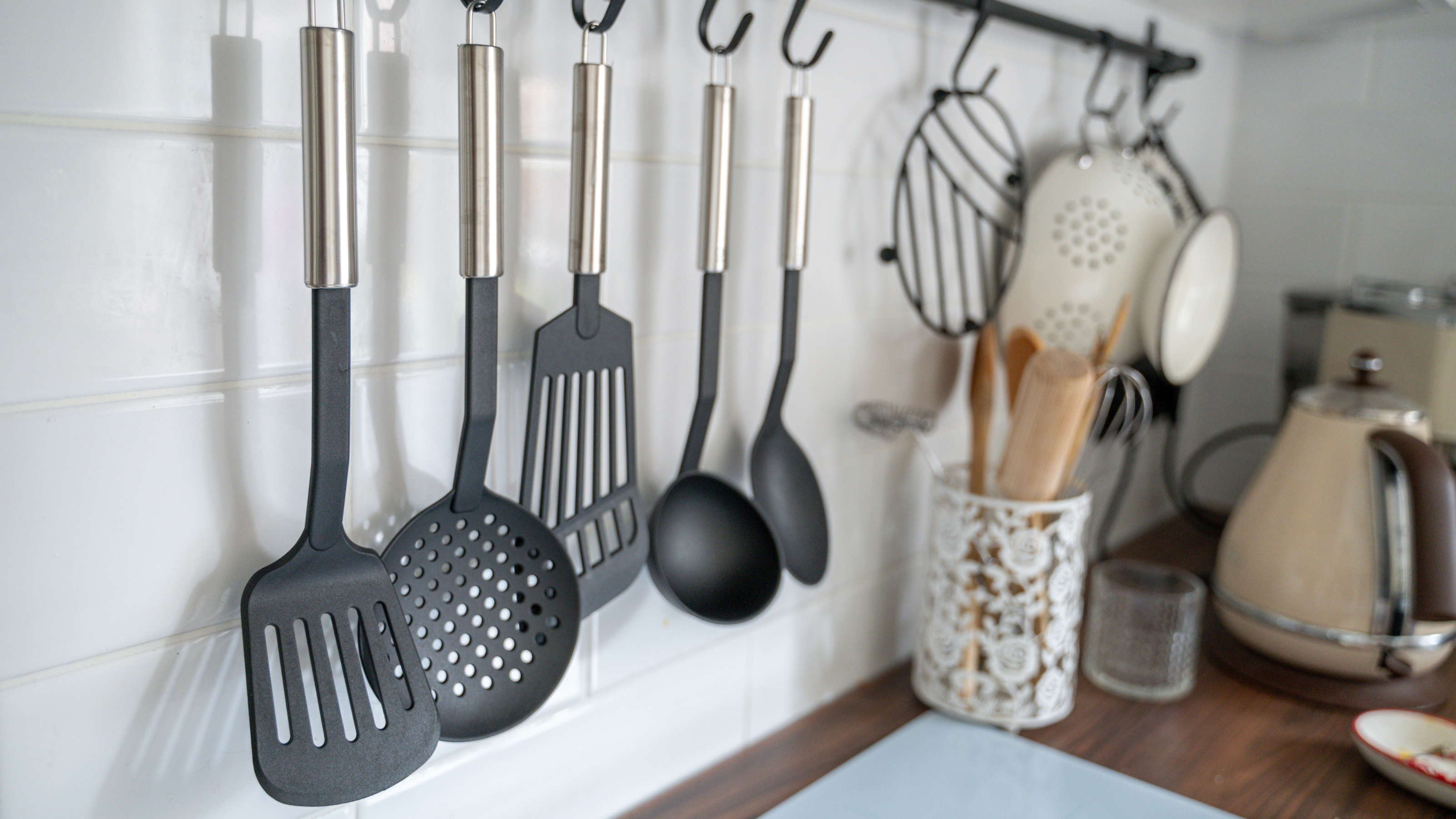
Black coloured plastic kitchen utensils, such as spoons and spatuals, may contain toxic flame retardants from recycled electrical products according to a new study.
The same chemicals were also found in children’s toys, takeaway containers and meat packaging. The study, published in the US, screened 203 black plastic products and found black plastic contained toxic brominated flame retardants (BFRs) in 85% of them.
You may have your favourite kitchen utensils that are a perfect match for your best saucepans, but it is worth considering whether or not they may cause harm.
Despite being restricted in the EU since 2006, retardant levels in the UK and USA are especially high according to a 2017 study by Breast Cancer Now UK. What’s more, research has shown BFRs can cause early mammary gland development which is linked to an increased risk of breast cancer, according to a 2021 study in Science Daily.
The latest study, published 1 October in the US scientific journal Chemosphere focused on the prominence of BFRs in the states and found black plastic in the US had five to 1,200 times greater levels of BFR decaBDE than the European Union’s limit.
However, experts have warned that here in the UK, toxic levels of BFRs are still present in black plastic kitchen utensils.
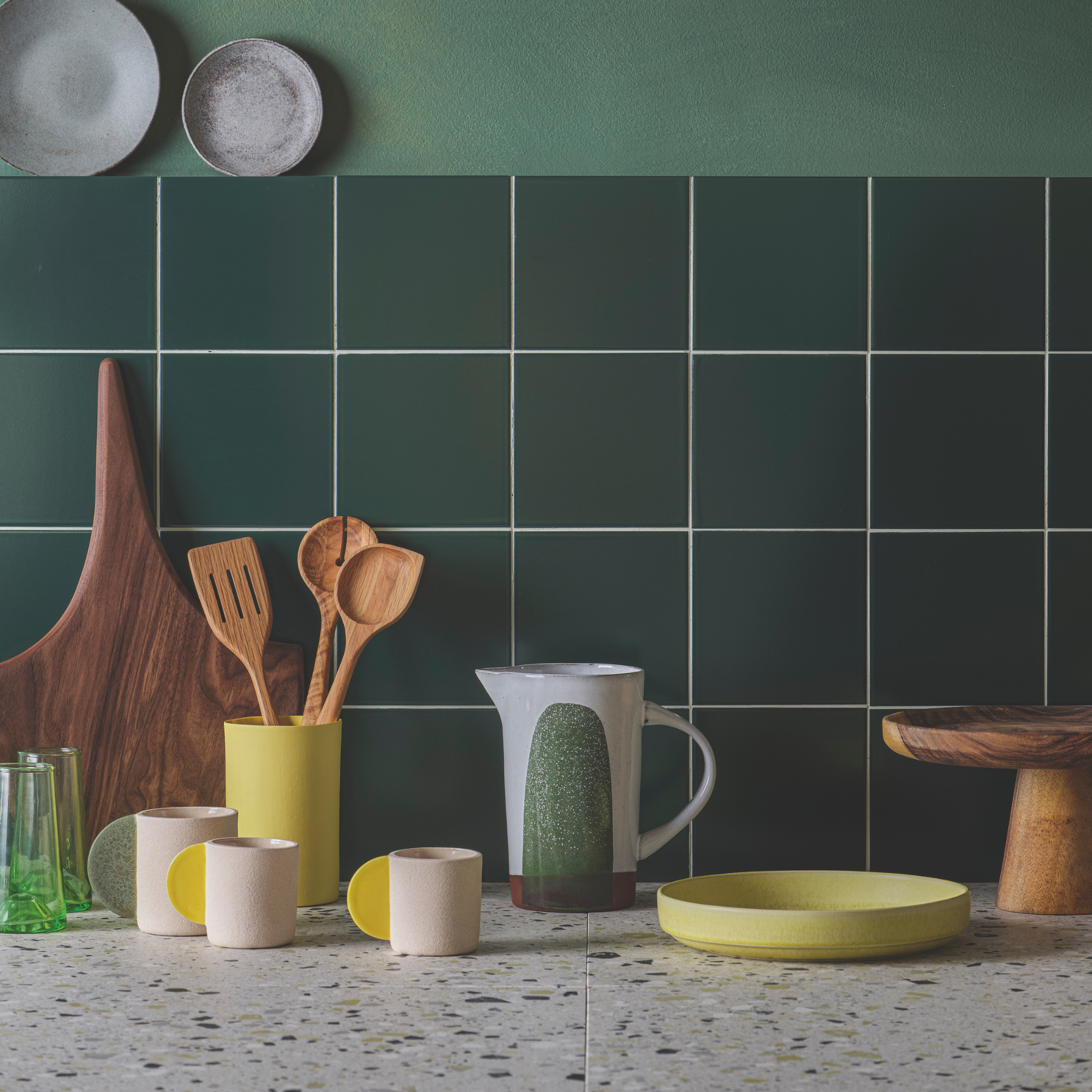
What's the risk?
A 2018 study conducted by the University of Plymouth, found that Hazardous chemicals such as bromine, antimony were appearing in household products as a result of the recycling process. It stated manufacturers were using recycled electrical equipment as a source of black plastic during the process.
Sign up to our newsletter for style inspiration, real homes, project and garden advice and shopping know-how
‘These chemicals usually end up in kitchen utensils due to the recycling of electronic waste, which is treated with flame retardants to prevent overheating and fires,’ says Mike Schmidt, an attorney for Schmidt & Clark LLP, with a specialism in product liability.
‘When these plastics are recycled in kitchen items, the harmful chemicals remain in the material. This means that every time you use these utensils, especially with hot food, there’s a risk of these chemicals leaching into your meals.’
These chemicals are hard to trace during the recycling process.
‘These plastic chemicals do not disappear through recycling, they compound up, losing traceability,’ says Sian Sutherland, Co-Founder of A Plastic Planet and Plastic Health Council.
This means that chemicals can transfer into recycled plastics as they are processed. According to Greenpeace, the recycling process can even forge new toxic compounds as different chemicals come into contact with each other.

Will my health be effected?
‘One single plastic item may expose us to a small amount of chemicals but if you multiply this by the millions of times you take a drink from a plastic bottle or stir your food with a plastic utensil each year then the accumulation of chemicals is what takes its toll,’ says Sian.
‘PFAs and phthalates present in plastic may cause cancers, infertility, heart disease and more.
‘Recent research from Plastic Health Council member, Professor Lukas Kenner, has even revealed that cancer cells spread at an accelerated rate after contact with microplastics suggesting that plastics could play a key role in early-onset cancer genesis.’
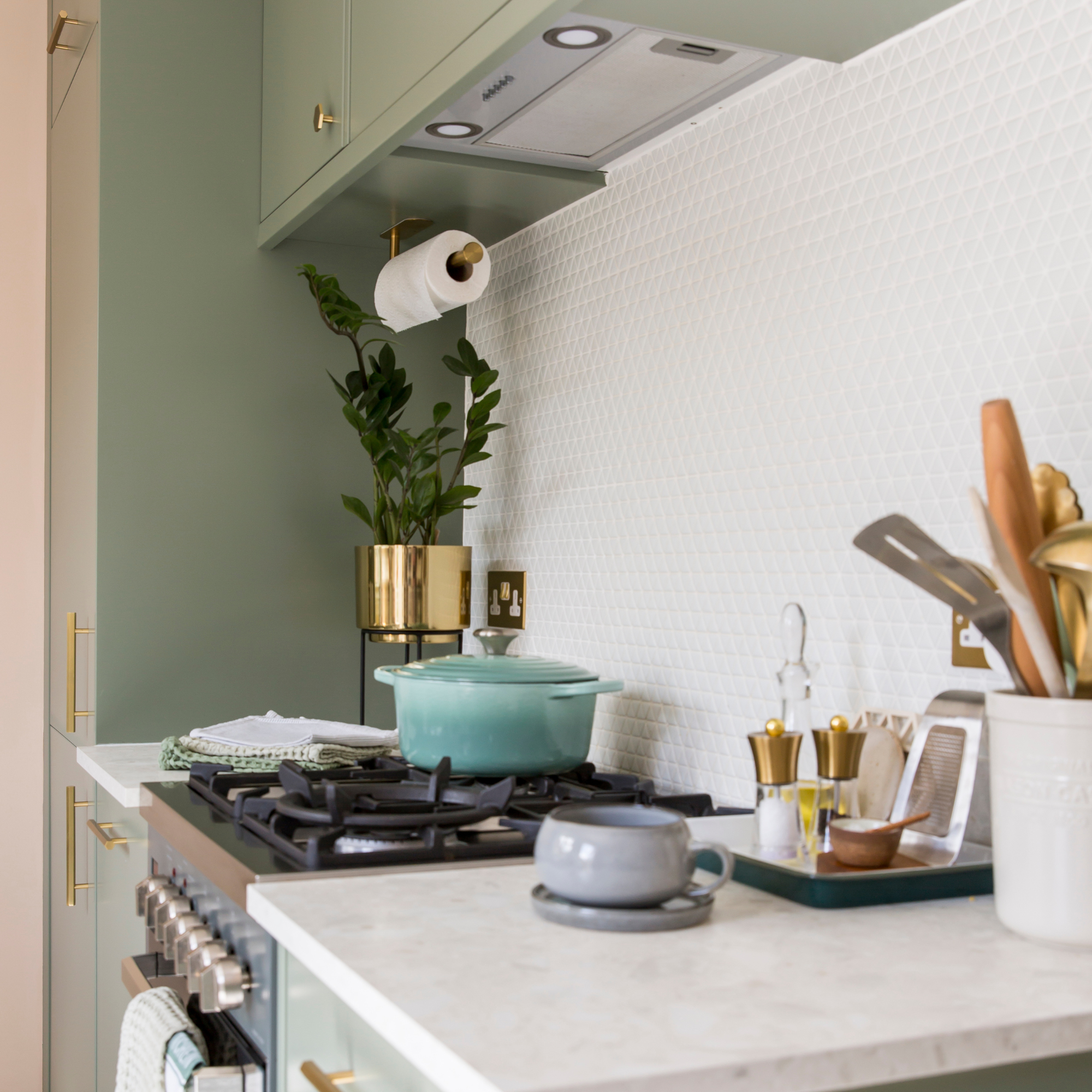
What can I use instead of plastic?
Sian is working with Alder Hey Children’s Hospital and NHS trusts to campaign for more regulation around plastic, and both Sian and Mike recommend ditching plastics when it comes to cooking.
‘For those looking for safer alternatives, stainless steel and silicone utensils are excellent choices,’ says Mike.
‘Stainless steel is durable, easy to clean, and doesn’t contain harmful chemicals. It’s a material that’s been trusted in kitchens for decades.
‘Silicone utensils are also a good option as they are heat-resistant and free from toxic additives. They’re flexible, which makes them great for non-stick cookware, and they come in a variety of colours and styles to suit any kitchen.
‘Both materials provide a safer alternative to black plastic and can help reduce exposure to harmful chemicals.’
Sian’s comments: ‘There are alternatives to plastic products or packaging out there, whether made of metal, sustainably sourced paper, or natural materials that work with the Earth and not against it.’
While it is not always possible to ensure plastic products we buy are free from toxins, there are a couple of things you can check.
Firstly, check labels to see if an item is BPA free - this means it doesnt have the toxic chemical Bisphenol A , which has also been linked to cancer.
Secondly, check the resin identification code. This code is usually stamped on the bottom of product and is an arrow-shaped triangle with a number inside. Numbers two, four and five are generally considered safe for food.
Our non-plastic picks
Here is a selection of kitchen utensils that are non-plastic.

Kezia Reynolds joined the Ideal Home team as News Writer in September 2024. After graduating from City, University of London in 2022 with a bachelor’s degree in journalism, Kezia kicked off her career spending two years working on women’s weekly magazines. She is always on the lookout for the latest home news, finding you the best deals and trends - so you don’t miss a thing!
